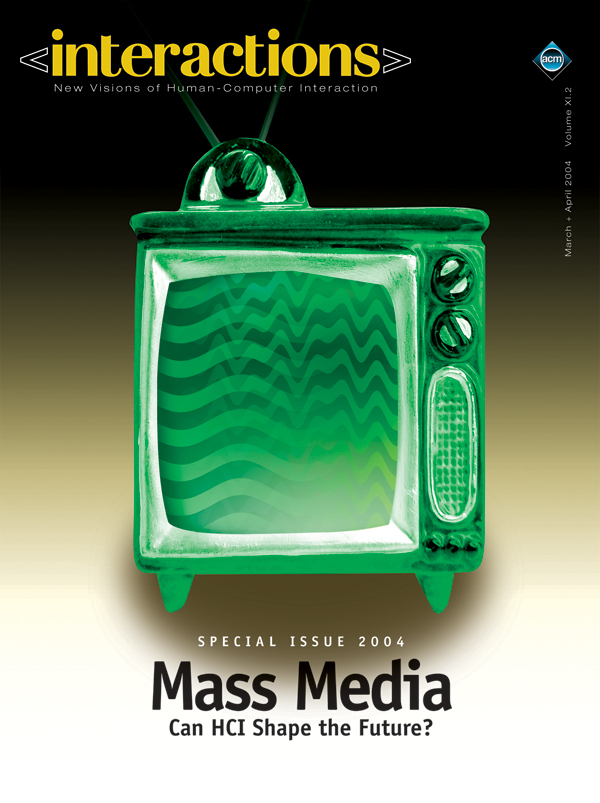Authors:
Lorenzo Wood, Luke Skrebowski
The pace of innovation in the technology industry means that people are constantly presented with new things to learn and asked to adopt things for which they often have not expressed a direct need. Unsurprisingly, most people cope by switching off and getting involved only with that which they are forced to. Although the future surrounds us, most people live in versions of the past. As Marshall McLuhan observed, "We look at the present through a rearview mirror. We march backwards into the future" [3]. So, how do we change this? More than anything else we need to help…
You must be a member of SIGCHI, a subscriber to ACM's Digital Library, or an interactions subscriber to read the full text of this article.
GET ACCESS
Join ACM SIGCHIIn addition to all of the professional benefits of being a SIGCHI member, members get full access to interactions online content and receive the print version of the magazine bimonthly.
Subscribe to the ACM Digital Library
Get access to all interactions content online and the entire archive of ACM publications dating back to 1954. (Please check with your institution to see if it already has a subscription.)
Subscribe to interactions
Get full access to interactions online content and receive the print version of the magazine bimonthly.







Post Comment
No Comments Found